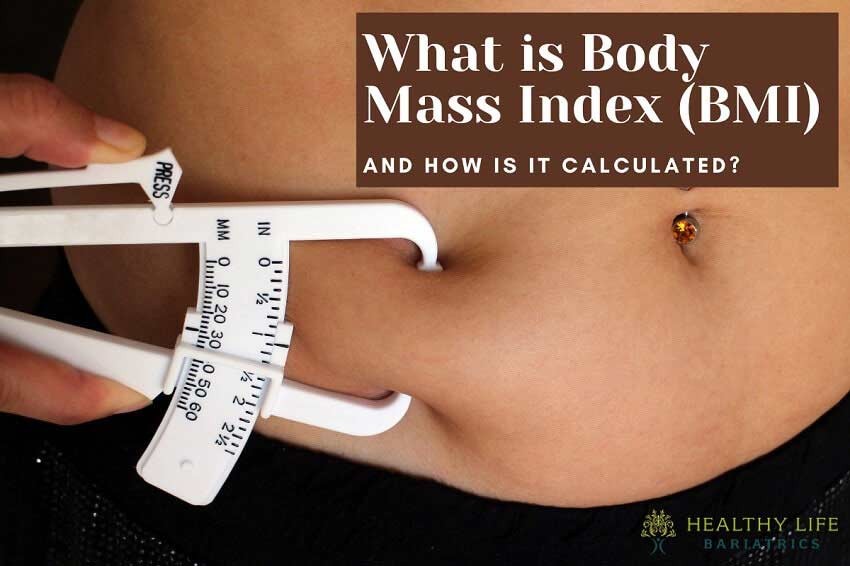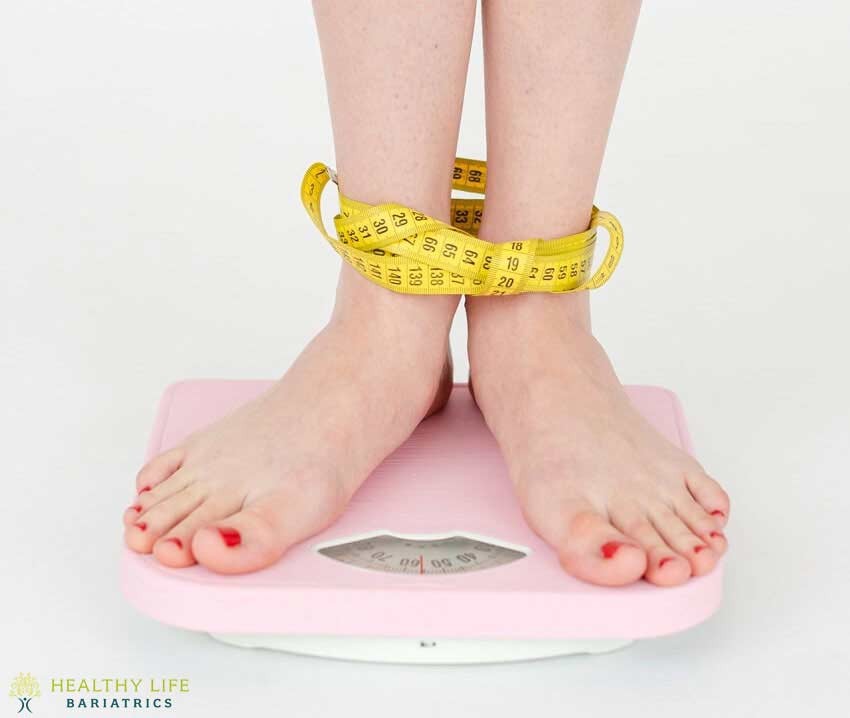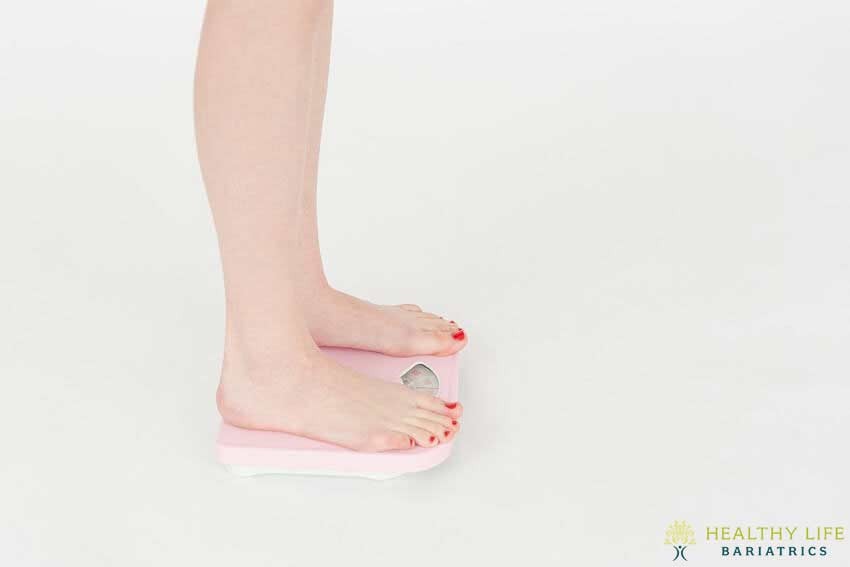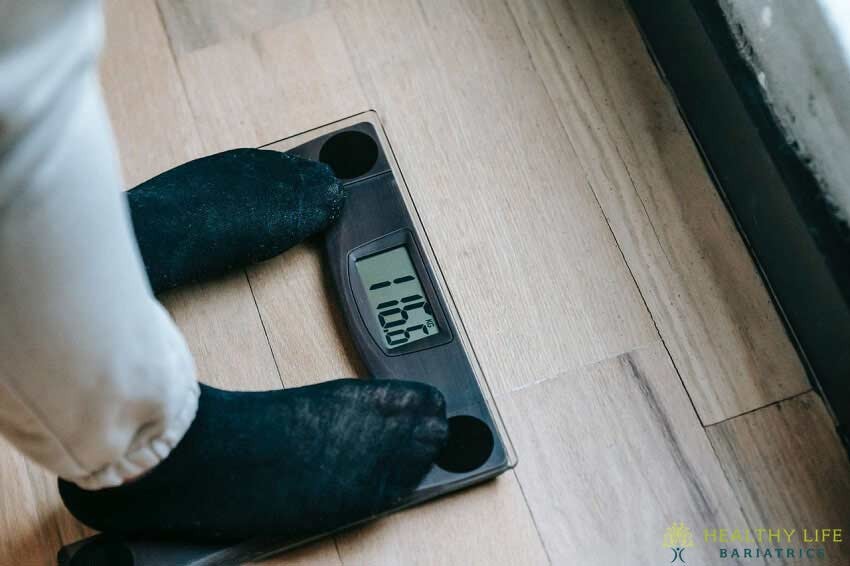
Have you ever tried to determine how much you are overweight? If so, you probably found yourself using the Body Mass Index scale, otherwise known as the BMI scale.
BMI is used by doctors to determine the compositional makeup of your body.
More specifically, medical professionals can use the measuring system to estimate how much of your body weight is composed of muscle, bone, and other tissue compared to how much fat you carry.
BMI is also used by bariatric doctors to determine if medical intervention is necessary for treating morbid obesity.
But BMI doesn’t tell the whole story about a patient. It is only an initial assessment tool.
BMI does not diagnose the body fatness or health of a patient. For those indications, further testing would be needed.
BMI is still important, however. Keep reading to learn why this measurement tool is used and how you can use it to assess your health.
BMI is a measurement of your body fat based on your height and weight. The calculations are the same for men, women, and children.
The formula for Body Mass Index takes your weight in kilograms divided by your height in meters squared.
Use a similar formula when using pounds and inches. You would take your weight in pounds divided by your height in inches squared. Then multiply the total by a conversion factor of 703.
For example, a 5’11” male weighing 240 lbs. would have a formula that looked like so:
[240 / (71)² x 703 = 33.5
A 5’5” woman weighing 175 lbs. would have a BMI that is calculated like so:
[175 / (65)² x 703 = 29
How do these measure up on the BMI scale? Let’s take a look.

While the calculations for Body Mass Index are the same for adults, teens, and children, the way the data is interpreted differs.
For adults 20 years of age and older, BMI uses the following weight status categories for men and women of all body types and ages.
Underweight = >18.5
Healthy Weight = 18.5 to 24.9
Overweight = 25.0 to 29.9
Obese = 30.0 and Above
Doctors sometimes break down the obesity category into smaller categories, like so:
Class 1 Obesity: 30 to <35
Class 2 Obesity: 35 to <40
And Class 3 (Severe Obesity): 40 or higher
Children and teenagers undergo myriad body fat changes as they approach and go through puberty. The level of body fat is different between boys and girls, as well. For these reasons, doctors need to be age and sex-specific when calculating Body Mass Index for these younger age groups.
The calculations can get complicated but basically work with major percentile points. Obesity in the 2 to 19 age groups, for example, is classified as a BMI over the 95th percentile in children of the same age and sex. The CDC has a growth chart you can refer to for further clarification.
Scientists have determined that body mass index is strongly linked to body fatness. But as we stated earlier, there is more to the story.
If a man and a woman have the same BMI, the woman will usually have more body fat.
If an older man and a young man have the same BMI, the wiser individual will usually have more body fat.
And if two women have the same BMI but one is an athlete, the non-athlete will tend to have a higher percentage of body fat.
Therefore, we can conclude that the BMI scale has a difficult time distinguishing body fat from muscle and bone. This is why other tests may be used to find a more accurate body fat percentage.

Your doctor or bariatric surgeon might use various tools which can give an improved assessment of your overall percentage of body fat.
Skin thickness calipers are a popular means of measuring one’s fat percentage. The healthcare professional will pinch the skin at the hip or at the back of the arm, for example, to obtain a measurement result.
Underwater (hydrostatic) weighing is another option, where your body is submerged in a tank of water. The volume of displacement is then measured to determine your body composition.
Doctors can also measure your waist circumference, take your waist-to-hip ratio, and use a smart scale that measures your body fat electronically.
Body mass index is often used by non-athletic individuals looking to lose a significant amount of excess weight. Some underweight individuals may also use the scale to estimate their health status.
The BMI scale is not useful for muscle builders, nor will it give accurate scores to long-distance athletes, pregnant women, or the elderly.
Those with higher amounts of muscle mass may have a high BMI but may not be at significant health risk as someone carrying a significant amount of fatty tissue.
BMIs in the overweight and obese categories have increased steadily since the 1970s. The increase has been blamed on bad eating habits, the prevalence of fast and processed foods, and our sedentary lifestyles.

Most people are aware that being overweight or obese is unhealthy. If you are currently overweight, losing enough weight to put you at a healthy BMI is key to staving off illness and prolonging your life.
Once you achieve a BMI that indicates obesity, you open yourself up to a host of weight-related illnesses. In fact, there are over sixty comorbidities to obesity you could be at risk from by maintaining an elevated BMI.
Obesity-linked diseases and health conditions include high blood pressure (hypertension), high cholesterol, type 2 diabetes, gallbladder disease, sleep apnea, chronic inflammation, and several cancers.
You are even at an increased risk for all causes of death. By losing weight, you can eliminate the risks of these ailments. Some people find that losing their excess weight alleviates symptoms from many of these ailments, such as type 2 diabetes and others.
A high BMI can make you susceptible to a range of health issues.
Don’t play around with your health. By losing 5% to 10% of your excess body weight, you can reduce those health risks and improve your quality of life (not to mention potentially lengthen your life as well).
If you have achieved obesity or higher, bariatric surgery could be the answer to helping you live a healthier and longer life.
Schedule a consultation at Healthy Life Bariatrics and sit down with Dr. Babak Moeinolmolki during a private, one-on-one consultation. You can get your questions answered and become more informed about the various techniques available for helping you lose weight permanently, such as the gastric sleeve procedure.
Call today throughout Southern California and book your time. If you have tried everything to lose weight, but to no avail, this one phone call could change your life for the better. Dial now to get started. (310)861-7844.